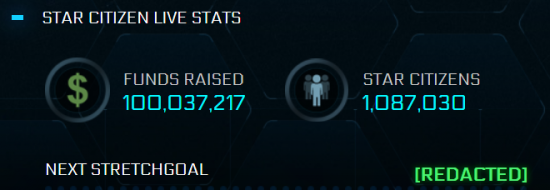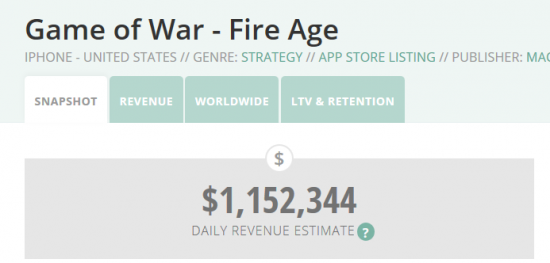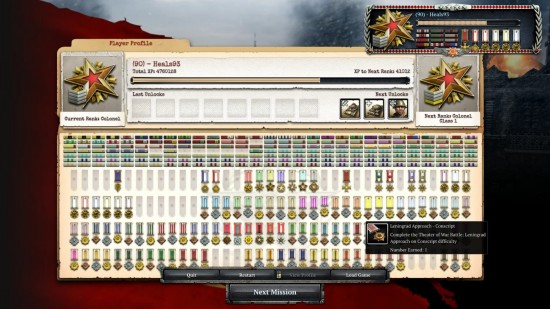This may not be popular, but its how I feel. First, some background and disclaimers. I run a small games company making games for the PC, strategy games with an up front payment. We don’t make ‘free to play’ games or have micro transactions. Also, I’m pretty much a capitalist. I am not a big fan of government regulation in general. I am a ‘get rid of red tape’ kind of guy. I actually oppose tax breaks for game development. I am not a friend of regulation. But nevertheless.
I awake this morning to read about this:

Some background: Star Citizen is a space game. Its being made by someone who made space games years ago, and they ‘crowd-funded’ the money to make this one. The game is way behind schedule, and is of course, not finished yet. They just passed $100,000,000 in money raised. They can do this because individual ships in the game are for sale, even though you bought the game. I guess at this point we could just say ‘A fool and his money are soon parted’, but yet we do not do this with gambling addiction. In fact we some countries have extremely strict laws on gambling, precisely because they know addiction is a thing, and that people need to be saved from themselves.
Can spending money on games be a problem? Frankly yes, and its because games marketing and the science of advertising has changed beyond recognition from when games first appeared. Games ads have often been dubious, and tacky, but the problem is that now they are such a huge business, the stakes are higher, people are prepared to go further. On the fringes we have this crap:

But in the mainstream, even advertised in prime-time TV spots we have this crap:

And this stuff works. ‘Game of War’ makes a lot of money. That ad campaign cost them $40,000,000. (Source). Expensive? not when you earn a million dollars A DAY: (Source).
 Now if you don’t play games, you might be thinking ‘so what? they must be good games, you are jealous! But no! In fact all the coverage of games like Evony and Game Of War illustrates just how bad they are. They earn so much because the makers of those type of games have an incredibly fine tuned and skillful marketing department bent on psychological manipulation. You think I’m exaggerating? Read this. Some choice quotes:
Now if you don’t play games, you might be thinking ‘so what? they must be good games, you are jealous! But no! In fact all the coverage of games like Evony and Game Of War illustrates just how bad they are. They earn so much because the makers of those type of games have an incredibly fine tuned and skillful marketing department bent on psychological manipulation. You think I’m exaggerating? Read this. Some choice quotes:
“We take Facebook stalking to a whole new level. You spend enough money, we will friend you. Not officially, but with a fake account. Maybe it’s a hot girl who shows too much cleavage? That’s us. We learned as much before friending you, but once you let us in, we have the keys to the kingdom.”
Lets think about this for a minute. A company hires people to stalk its customers and befriend them so they can build up a psychological profile of each customer to allow them to extract more money. This is not market research, this is not game design. This is psychological warfare. Lines have been crossed so much we cannot even see them behind us with binoculars. We need to reign this stuff in. Its not just psychological warfare, but warfare where you, the customer, are woefully outgunned, and losing. Some people are losing catastrophically.
You know how much you hate those ads that track you around the internet reminding you of stuff you looked at but didn’t buy? That is amateur hour compared to the crap that some games companies are pulling these days. The problem is, we have NO regulation. AFAIK no law prevents a company stalking its customers on facebook. We live in an age where marketers have already tried using MRI scans on live subjects to test advertising responsiveness. You think you are not manipulated by ads? Get real, read some of the latest books on the topic.We are only a short step away from convincing AI bots that pretend to be our new flirty friends in game that urge us to keep playing, keep upgrading, keep spending.
Modern advertising is so powerful we should be legislating the crap out of this sort of thing. How bad do we let it get before we get some government imposed rules? We are in the early days of mass-population study and manipulation, the days where us, the gamers describe a game as ‘addicting’ as a positive. Maybe it isn’t such a positive after all. Maybe we need to start worrying about if a game is actually good, rather than just ‘addicting’. Maybe we need people to step in and save us from ourselves. We are basically still just hairless apes. We do not possess anything like the self-control or free-will that we think we do.
Like alcohol, gambling, smoking or eating, most of us do not find gaming addictive. Thus we fail to see the problem. it depends how you are wired. See this ‘awards screen’ in company of heroes 2:

To most of us, thats just silly, and too big, and OTT. But if you suffer from OCD, that can be a BIG BIG problem for you. They KNOW this. Its why it is done. it works. Keep playing kid. keep playing. KEEP PLAYING. This sort of thing doesn’t need to work on everyone. If it works on just 1% and we can get them to spend $1,000 a month on our game (who cares if they can afford it?), then its worth doing.
I hate regulation, but sometimes you need it. Stopping a business dumping waste in a river is a good idea. Stopping companies treating their customers like animals that can be psychologically trapped and exploited is a good idea too. This stuff is too easy. Save us from ourselves.